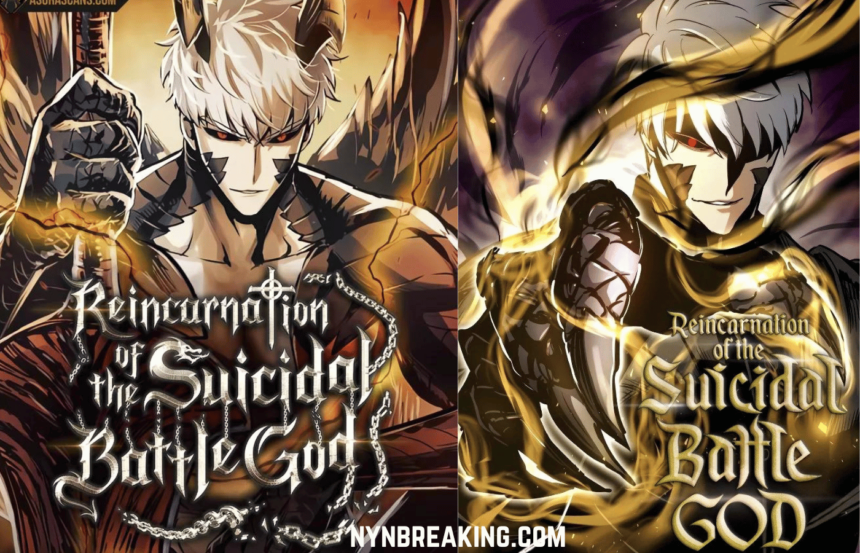Introduction
The concept of reincarnation has fascinated humanity for centuries, offering a lens through which we can explore themes of rebirth, redemption, and eternal cycles. In the realm of mythology and fantasy, the reincarnation of powerful deities adds layers of complexity and depth to their narratives. One such compelling story is that of the reincarnation of the suicidal battle god 100. This tale intertwines themes of despair, strength, and the quest for a second chance. In this article, we will delve into the detailed journey of the suicidal battle god’s reincarnation, examining its origins, transformations, and the profound lessons it imparts.
The Myth of the Suicidal Battle God
Origins of the Battle God
The legend of the suicidal battle god originates from ancient folklore. Known for unparalleled strength and a fierce temperament, this deity was both revered and feared. The battle god’s purpose was to protect the realm from malevolent forces, often engaging in epic battles that shook the heavens and earth.
The Tragic Downfall
Despite the battle god’s might, there came a time when the weight of ceaseless warfare and endless bloodshed became unbearable. Stricken by a deep existential crisis and overwhelming guilt over the destruction left in his wake, the battle god succumbed to despair. In a moment of profound sorrow, he took his own life, believing that his death would bring peace to the world.
The Cycle of Rebirth
The Concept of Reincarnation
Reincarnation is the belief that the soul, after death, begins a new life in a different body. This cycle of rebirth is seen as a journey towards spiritual growth and enlightenment. In the context of the suicidal battle god, reincarnation offers a path to redemption and a chance to rectify past wrongs.
The Rebirth of the Suicidal Battle God
The reincarnation of the suicidal battle god 100 marks the beginning of a transformative journey. Reborn into a world far removed from his former existence, he is granted a new identity, free from the burdens of his past. This new life is an opportunity to rediscover his purpose and to use his immense power for a greater good.
The Journey of Redemption
Early Life and Struggles
In his new life, the reincarnated battle god is unaware of his divine origins. He experiences a childhood marked by normalcy, yet shadowed by an inexplicable sense of duty and restlessness. As he grows, he begins to encounter remnants of his past, triggering memories of his previous life.
Awakening Powers
The awakening of his dormant powers is a pivotal moment. It is both a blessing and a curse, as he grapples with the responsibilities that come with his newfound strength. These abilities set him apart, attracting both allies and adversaries who recognize the latent power within him.
Facing Past Demons
Confronting the specters of his past is an integral part of his journey. The reincarnated battle god must face the consequences of his former actions, seeking forgiveness from those he wronged and making amends wherever possible. This quest for atonement is fraught with challenges but is crucial for his spiritual evolution.
Transformations and Growth
Mentorship and Guidance
Guidance from wise mentors helps shape his path. These mentors, often mystical beings or sages, provide the reincarnated battle god with the knowledge and wisdom needed to harness his powers responsibly. Their teachings are instrumental in his transformation from a warrior of destruction to a protector of peace.
Building Alliances
Forging alliances with other powerful beings and forming bonds with mortals are essential steps in his journey. These relationships provide support, companionship, and perspectives that enrich his understanding of his role in the world.
Battles and Triumphs
The reincarnated battle god’s story is punctuated by battles that test his resolve and strength. These conflicts, however, are not merely physical but also moral and ethical dilemmas that challenge his newfound values. Each victory is a testament to his growth and a step towards fulfilling his redemptive destiny.
Lessons from the Reincarnation of the suicidal battle god 100
The Power of Second Chances
The reincarnation of the suicidal battle god 100 underscores the transformative power of second chances. It illustrates that no matter how dire one’s past may be, there is always an opportunity for redemption and growth.
The Importance of Forgiveness
Forgiveness, both of oneself and others, is a recurring theme. The battle god’s journey highlights the necessity of letting go of past grievances and guilt to move forward.
Using Power Responsibly
With great power comes great responsibility. The reincarnated battle god learns to wield his strength not for personal gain but for the greater good, protecting those who cannot defend themselves and maintaining peace.
The Cultural Impact
Influence on Literature and Media
The story of the reincarnated battle god has permeated various forms of media, inspiring books, films, and games. Its themes of rebirth and redemption resonate with audiences, offering a compelling narrative that explores the depths of human experience.
Modern Interpretations
Modern interpretations of this myth often adapt it to contemporary settings, exploring the psychological and philosophical aspects of reincarnation. These retellings keep the legend alive, allowing it to evolve and remain relevant across generations.
Conclusion
The reincarnation of the suicidal battle god 100 is a profound narrative that delves into themes of despair, rebirth, and redemption. Through his journey, we learn about the power of second chances, the importance of forgiveness, and the responsible use of strength. This myth continues to captivate and inspire, reminding us of the enduring human capacity for transformation and growth.
FAQs
What is the significance of the battle god’s suicide?
The suicide of the battle god signifies his ultimate despair and disillusionment with his role. It serves as a catalyst for his reincarnation, marking the end of one cycle and the beginning of another.
How does the reincarnated battle god discover his past?
Through a combination of latent memories, encounters with mystical beings, and the awakening of his powers, the reincarnated battle god gradually uncovers his divine origins.
What challenges does the reincarnated battle god face?
He faces numerous challenges, including internal struggles with guilt and responsibility, external threats from adversaries, and the moral dilemmas of wielding great power.
How does the reincarnated battle god seek redemption?
He seeks redemption by confronting those he wronged in his past life, making amends, and using his powers to protect and serve others.
Why is mentorship important in the reincarnated battle god’s journey?
Mentorship provides the reincarnated battle god with the guidance and wisdom needed to navigate his powers responsibly and to grow spiritually.
What lessons can we learn from the reincarnation of the suicidal battle god 100?
The story teaches us about the importance of second chances, forgiveness, and the responsible use of power. It also highlights the potential for growth and redemption, regardless of past mistakes.









